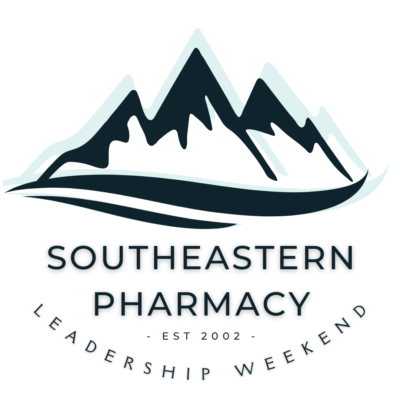Feds’ money to fight shortages, sex-pill recall, long-term med warnings, and more
29 Nov 2023
Posted by Andrew Kantor
GLP-1 cage match winner
“Mounjaro is more effective than Ozempic for weight loss” —in other words, tirzepatide is better than semaglutide.
Patients taking Eli Lilly’s Mounjaro were significantly more likely to lose 5%, 10% and 15% of their body weight overall and saw larger reductions in body weight after three months, six months and a year compared with those on Novo Nordisk’s Ozempic.
What makes this story different is that it’s based on a large, real-world study, and that it found a significant difference between the two; previous (small) studies found just a slight difference.
Gov’t declares shortages to be a national security issue, invokes Cold War law
We’ve said before that the federal government can’t force companies to make drugs, but it can encourage them with taxpayer dollars — as it’s taxpayers who are dealing with drug shortages.
Invoking a 1950s law — the Defense Production Act — the Biden administration is essentially declaring those shortages to be a national security issue.
Doing so means the government will be able to invest money “in domestic manufacturing of essential medicines, medical countermeasures, and critical inputs that have been deemed by the president as essential to the national defense.” It’s not waiting, either; HHS has already identified $35 million worth of investments “in domestic production of key starting materials for sterile injectable medicines.”
Other plans announced:
- A new HHS supply chain resilience and shortage coordinator “to strengthen the resilience of medical product and critical food supply chains, and to address related shortages.”
- The Defense Department will also be looking at ways of “reducing reliance on high-risk foreign suppliers.”
- Better monitoring of all aspects of the supply chain, including “supply chain risk assessment tools” out of the Commerce Department that will hopefully “address foreign dependency vulnerabilities and points of failure.”
- A public-private partnership headed by the Department of Transportation to monitor logistics so companies can “avoid bottlenecks, shorten lead times for customers, and enable a more resilient and globally competitive freight network.”
In short, the government will be able to pay to increase production, and to use its gigantic resources to provide information to help reduce disruptions. But there’s only so much it can do in a market-driven economy — at the moment, American companies can simply reap more profits by having foreign manufacturers make their drugs on the cheap.
Trigger warning: The link goes to the White House website, which is a bit … let’s call it rah-rah. It has more detail than a lot of the news stories, though.
A recall you can snicker about
Miami-based Noah Wholesale has recalled its sexual enhancement pill, “The Rock,” because 1) it turns out not to be FDA-approved and 2) it may or may not work. It contains good ol’ sildenafil, but that’s not listed on the package.
Each red 1200 mg capsule was sold solo in a blister pack with red and black lettering on a white piece of cardboard. The recalled lot is No. 03032021, expiration 12/2007 with UPC No. 6 61799 95052 7.
And in the final bad pun, it was distributed by a company called Steele Products.
Long-term use issues
Of ADHD meds
Taking methylphenidate or lisdexamfetamine for three years or more raises a patient’s risk of cardiovascular issues. That’s according to a meta-analysis by Swedish researchers, who found that “each 1-year increase in use of ADHD drugs was tied to a 4% increased risk of CVD,” and this applied to both children and adults.
In particular, hypertension and arterial disease were the big issues. The good news was that they didn’t find a connection to arrhythmias, cerebrovascular disease, heart failure, ischemic heart disease, or thromboembolic disease. So there’s that.
Marketing opportunity: Recommend sphygmomanometers to your patients taking ADHD meds.
Of aspirin
Taking low-dose aspirin used to be a gimme for older people to cut the risk of heart issues. Then it got dialed back because of GI problems. Now there’s a new twist: cancer.
Based on 20 years’ of data, a group of those shifty Danes found that continuous use of low-dose aspirin was associated with…
- Increased risk of lung, bladder, brain, and renal pelvis or ureter cancers
BUT
- Decreased risk of melanoma, as well as non-Hodgkin lymphoma and cancers of the small intestine and liver
And then, to add yet another twist, “The researchers also looked at high-dose aspirin (500 mg) use and found that consistent use was associated with a lower risk of cancer overall.”
The takeaway? “It’s complicated.”
Are you coming to Asheville?
The early-bird deadline for the 2024 Southeastern Pharmacy Leadership Weekend is fast approaching — you only have until this Friday, December 1 if you want the discounted rate for the conference and the hotel.
The former “Women of Pharmacy Leadership Weekend” is now open to everyone — it’s January 12-14 at the Omni Grove Park Inn in Asheville, North Carolina.
Great speakers, tons of CE, and “plenty of time for spa appointments.”

GPhA members get a $100 discount: The early-bird rate till December 1 is just $379 for the weekend; after that it jumps to $479. Use discount code GAMEMBER24.
Full registration includes participation in all events, event materials, Friday night networking reception, and dinner and two breakfasts. It does not include the hotel, which is $259 per night, which includes the resort fee.
Click here for all the details.
Bird flu comes to Georgia
The bird flu (H5N1) has hit a Georgia duck-breeder in Sumter, affecting 30,000 birds. This is the first time avian influenza has hit Georgia.


